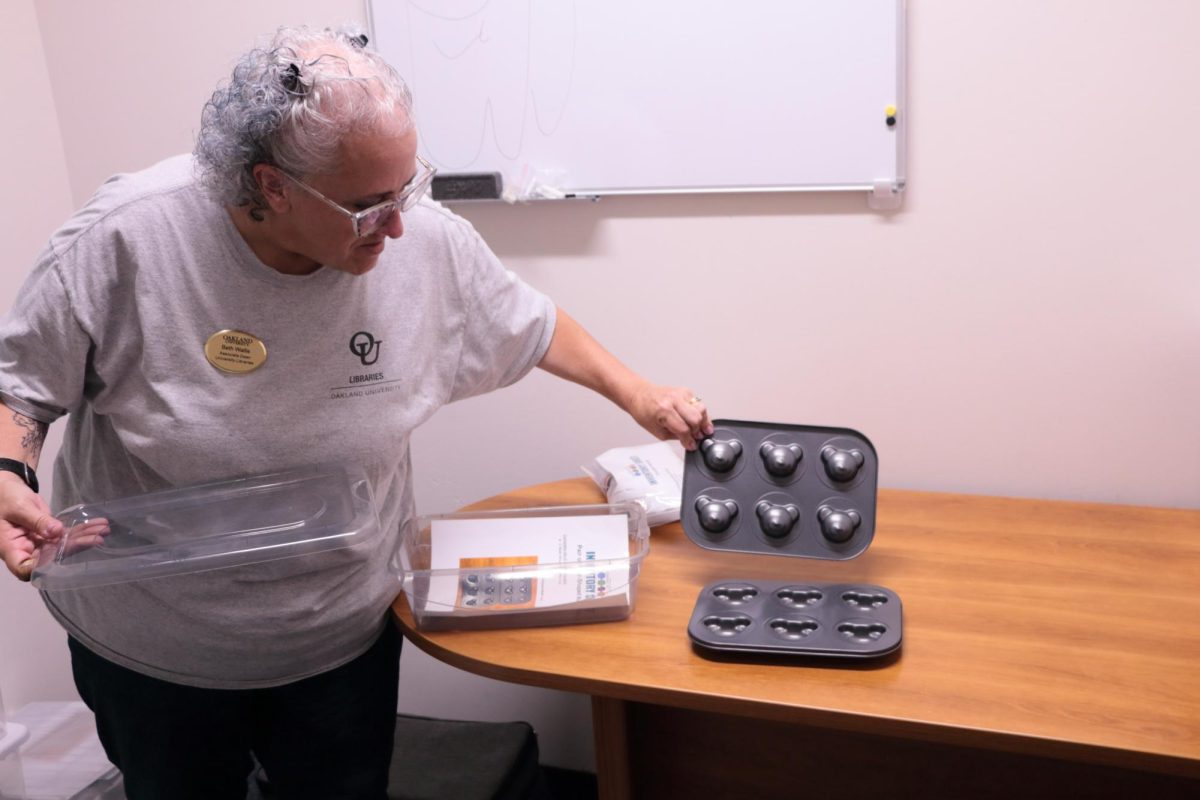
Questions, questions, and more questions. That’s what fuels Oakland University communication professor Valerie Palmer-Mehta.
“At home my nickname has always been Questions because I have a lot of them,” Palmer-Mehta said.
Her strong passion for questions and answers has always been the driving factor in her career. And she’s not just an educator at OU, she’s an innovator. Besides teaching, she has developed numerous courses, including Feminist Rhetorical Theory, Women, Power and Persuasion and, her newest — Political Communication.
In its inaugural semester, Political Communication — COM 4204 — focuses on the power of persuasive communication in campaigns through things like advertising and debates. It also examines how these forms of communication affect decision-making. Given the current political situation, Palmer-Mehta felt it was the perfect opportunity to offer this class.
“This class focuses on political campaign communication and presidential communication, especially on ethical standards that individuals look for in political candidates,” Palmer-Mehta said.
When developing this class it was crucial for the professor to create a comfortable environment for her students to engage. Growing up, her parents did not align with a political party. She believes this was beneficial for her development as an educator as it helped her become more well rounded. By being able to see the value in all perspectives she is able to better relate to her students and she uses this philosophy to guide her teaching.
In order to build the constructive and comfortable classroom atmosphere she always strives for, Palmer-Mehta had her students develop a list of core values that are used to guide class discussion. Examples of these values include being respectful of opinions and active listening.
“The biggest takeaway for me was day one of the class. She had us set ground rules for each other, and one that stuck out was that we didn’t have to agree with each other’s views, but we had to agree to listen,” said political communication student Cheyanne Kramer. “That agreement to listen to one another has stuck with me, even beyond the classroom.”
Palmer-Mehta said she has always been interested in the complexities in life, especially related to politics. She has devoted her research to investigating the complexities of political communication and most recently focusing on the rhetorical strategies of women in political positions.
“I have studied a range of women’s political rhetoric, from pro-democracy dissident Aung San Suu Kyi of Burma to second-wave U.S. feminist Andrea Dworkin to the rhetoric of Arkansas Governor Sarah Huckabee Sanders,” Palmer-Mehta said.
She said she has always been intrigued by how women use the resources of persuasion and language to navigate cultural obstacles and influence public culture.
When it comes to political alignment, she explained that she thinks some people are in silos and they don’t interact. She feels it’s vital to break down those walls and stop seeing each other as enemies. This philosophy is what drove her to develop the political communication class and is what fuels class discussion.
“I really enjoy Palmer-Mehta’s teaching style and find it very engaging. I appreciate how she encourages open discussions and critical thinking in class,” said political communication student Jacob Gilbert.
Palmer-Mehta believes in the power of communication to build worlds and transform lives.
“People underestimate the impact of their messages and they are so wrong. Everything we say or do makes an impact on others.”




Myra janabet • Nov 3, 2024 at 12:55 PM
Wow how dead on, if only the world could come to those terms and just listen, great article madison
William Connellan • Oct 25, 2024 at 12:16 PM
Well done. Timely. And we sure need such courses